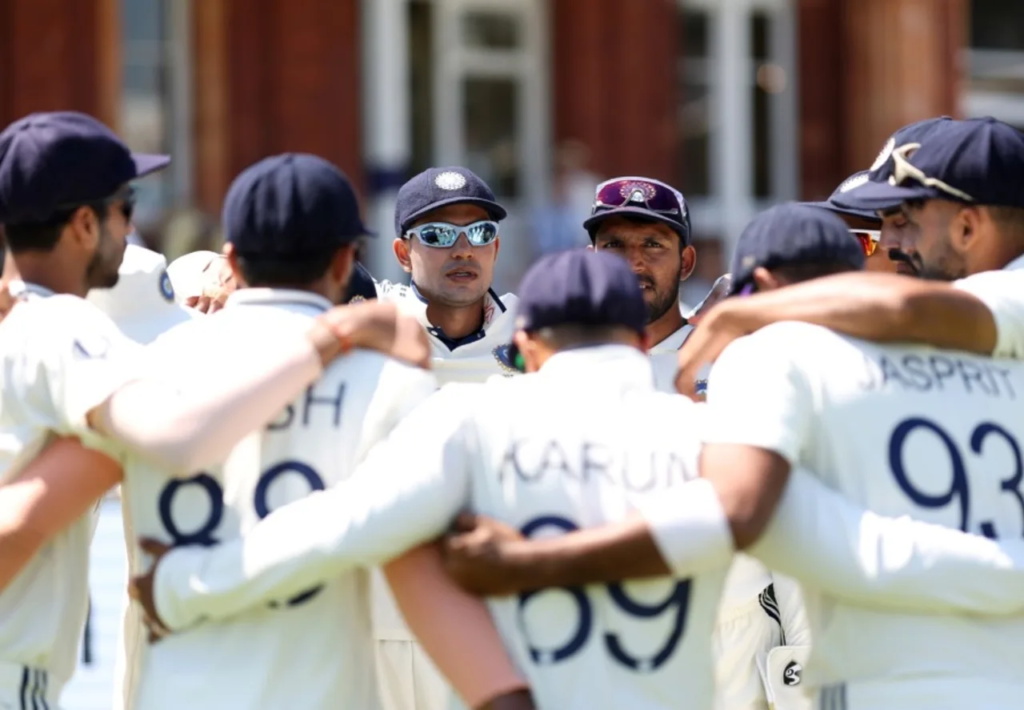
Highlighting Gill’s biggest challenge as Test Captain on the sample size of leading in the first three tests.
Shubman Gill needs to become a good communicator in highlighting the sort of team he wants India to be.
Talent isn’t the only foundation of the finest teams. They are moulded by a way of thinking, solidarity, and standards that are maintained both on and off it.
Partnerships are the foundation of great teams. They bowl together. They also have high expectations of one another, both intellectually and technically. Because they are unrelenting on the pitch and apply pressure with their deeds rather than their words, great teams are difficult to score against.
Captains are no different. The most successful captains do more than simply adjust bowling changes and arrange fields. They specify a way of thinking. They have standards. They help players understand their duties and feel confident enough to play them. Above all, they help their team through both good and terrible times.
India’s 25-year-old captain Shubman Gill is now the centre of attention as they get ready for the final two Test matches of their series in England. This moment will determine his future as a Test captain, but he is a brilliant young player who has demonstrated excellence with the bat and hints of leadership potential. He is in an atmosphere that is difficult for him to grow in, but the stakes are extremely high.
England has a 2-1 lead in the five-Test series following three exciting matches. However, if you hadn’t seen the scorecard and had seen the majority of those games, you could have thought India was winning.
They batted for extended stretches of time at Headingley with authority, but they were unable to convert their supremacy into a position that would win the game.
Then came the thrilling victory at Edgbaston, which demonstrated what this Indian squad is capable of when it plays as a cohesive unit even without Jasprit Bumrah. Gill was excellent. Rishabh Pant played freely and intentionally. They were clinical bowlers. India appeared to gain momentum.
But Lords exposed preexisting weaknesses. India struggled once more despite having solid positions, particularly at the bat, when only Rahul, Pant, and Ravindra Jadeja were able to hold their own.
The way Jadeja was handled in the closing minutes of the game was another key incident from the Lord’s Test. When left with the tail, Jadeja played carefully, farmed the strike, and shielded the tail, as many specialised batters do in that circumstance. It appeared to be a disciplined innings. Was that the correct one, though?
It was necessary to tell him straight out: “You are the one who needs to finish this. The tail’s role is to support you, but you have to aim for victory.”
Ben Stokes of England demonstrated just that in the 2019 Leeds match against Australia. Stokes knew that his leadership and team would support him whether he won or lost that innings.
At this point, Gill faces a true leadership issue. He needs to begin openly, proactively, and regularly establishing those expectations.
Gill needs to specify the kind of squad he wants India to have. The captain establishes the tone by actions, clear goals, and unmistakable standards in addition to words. This entails requiring discipline in the workplace. India cannot afford to revert to their previous level of fielding weakness. In the field, the top teams excel. Easy runs are not what they provide. They never miss an opportunity.
Excellent communicators make excellent captains. Gill needs to become one—and fast. Clear, composed communication is crucial whether it’s during a break in the dressing room, during training, or in the middle. Sometimes his bat has to speak for him. He needs to practise speaking in a way that unites the group, fosters trust, and promotes belief.
The Old Trafford Test is proving to be Gill’s most difficult test to date, both as a leader and as a batter. Although the timeline is not generous, he is learning on the job. To a team that sorely needs it, he must provide poise, clarity, and confidence. And now he has to do it.
This is Gill’s chance to establish his dominance if he hopes to become a great Test captain. Not only with the bat, but also with his ability to lead. Establish the benchmark. Make others do it. Decide on a team. Support them. Additionally, ensure that all men are aware of the expectations and hold them to them.
Because heroes aren’t really the point of cricket. Partnerships are key. Teams are the key. It also has to do with captains who inspire the best in everyone around them.
Gill will not only influence this series but also the direction of Indian cricket if he can lead with strength of purpose and clarity of thought.

